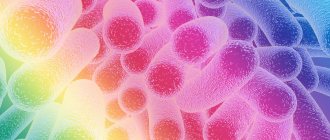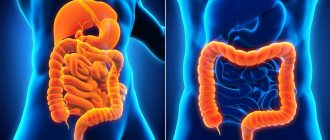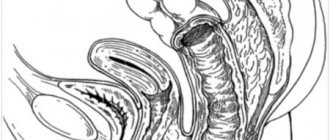Diseases of the gastrointestinal tract are usually associated with problems in the functioning of other systems of the human body. They are accompanied by unpleasant, painful symptoms and require urgent treatment.
Every person always wants to be healthy, full of strength and enjoy all the delights of life. However, unfortunately, recently there has been a trend towards the development of diseases of the gastrointestinal tract all over the world.
According to scientists, the reason for this is poor nutrition, regular stress, environmental problems and many harmful substances that surround us constantly.
The main task of the digestive system is to perform vital functions in our body. Life without it is absolutely impossible, since due to its basic processes (digestion of the nutrients received and their absorption), a person receives the necessary energy for work and rest. The stomach and intestines are the main organs of digestion, the activities of which are associated with both the initial and final stages of the entire digestive tract. If your stomach and intestines are healthy, they will never let you down.
It is worth noting that the human digestive system is quite sensitive. It immediately reacts to any, even minor changes, both in the internal environment of the whole body and in the entire external world, leading to various diseases of the gastrointestinal tract. They cause a lot of discomfort to the patient: discomfort and pain.
What are gastrointestinal problems?
Frequently recurring pain and spasms in the abdomen, stool disturbances, flatulence (gas formation, bloating and rumbling) can be manifestations of various problems of the gastrointestinal tract (GIT). Gastrointestinal diseases are usually divided into functional and organic disorders1:
- Functional disorders are quite common. As you can guess from the name, with this type of disorder the function of the gastrointestinal tract is disrupted. Functional disorders are characterized by symptoms such as pain and cramping in the abdomen, stool disturbances, flatulence (gas formation, bloating and rumbling). In most cases, such disorders are very unpleasant and greatly impair daily life.
- Organic disorders imply a change in the organ itself and its structure due to past diseases. Such violations occur much less frequently. Organic diseases that can cause disruption of the gastrointestinal tract include: gastritis, gastric ulcer, tumor, diabetes, hepatitis, gallbladder disease, various complications after surgery. Organic disorders require a thorough approach to treatment.
If we talk about functional disorders, which are much more common than organic ones, the causes in many cases are associated with impaired intestinal motor function1.
What can affect intestinal motility? There are several factors: for example, poor diet, overwork and stress.
It would seem, how can our emotional state affect the functioning of the intestines? But there really is a connection between the psychological and physical state. If a person is under constant stress, works a lot and gets little rest, the digestive system begins to react to overwork2. In turn, malfunctions of the digestive organs are often accompanied by a deterioration in general well-being, emotional disturbances, insomnia, irritability, anxiety and decreased physical activity.
One of the most common gastrointestinal problems is irritable bowel disease. Abdominal pain and spasms, stool disturbances, flatulence (gas formation, bloating and rumbling) are manifestations of a similar condition caused by a malfunction of the intestines due to spasms of smooth muscles. Such a failure is a consequence of a change in the rhythm of contraction of the intestinal walls. Depending on how the rhythm changes, diarrhea or constipation may occur. Slowing the movement of intestinal contents leads to constipation, and speeding it up leads to diarrhea.
Thus, the irritable intestine is a spasmodic organ whose functioning is disrupted. At the same time, there are no structural changes in the structure of the organ - abscesses, ulcers or more serious problems; the organ itself remains in order.
Classification
Gastrointestinal diseases are usually classified according to the location of the main problem, that is, based on the localization of the pathological process:
- diseases of the esophagus
- stomach diseases
- pancreatic diseases
- liver and gallbladder diseases
- duodenal diseases
- intestinal diseases.
Among the most common gastrointestinal diseases in Russia are usually noted:
- gastritis
- pancreatitis
- hepatitis
- peptic ulcer
- cholecystitis
- colitis.
What are the symptoms of gastrointestinal problems?
The gastrointestinal tract includes many organs, with each individual organ performing its own specific task. The upper gastrointestinal tract includes the oral cavity, pharynx, esophagus and other adjacent organs. The middle section is the stomach, liver and pancreas. The lower section includes the intestines (small, large and rectum).
Disturbances in different parts of the gastrointestinal tract can manifest themselves in different ways:
- Upper section (esophagus, stomach) – heartburn, bitterness in the mouth, acid belching, problems swallowing, nausea, pain and burning in the upper abdomen3.
- Middle and lower sections (small and large intestines) – pain and cramping in the abdomen, stool disturbances, flatulence: gas formation, bloating and rumbling3.
There is a misconception that diarrhea is associated with problems in the stomach, but this symptom indicates problems specifically in the intestines.
With constipation, pain may appear that does not go away until the intestines are cleansed. In addition, constipation may be accompanied by unpleasant gastric symptoms characteristic of the upper gastrointestinal tract: dry mouth, nausea, loss of appetite3. Such symptoms may disappear after visiting the toilet.
Diarrhea or diarrhea occurs spontaneously, during or before eating or even without eating. Most often, the activator of an unpleasant state is an emotional shock of any nature. This manifestation is popularly called “bear disease.”
It is worth noting that any symptoms may appear on their own or be part of an overall problem. If such symptoms bother you regularly and are accompanied by pain, then most likely irritable bowel disease may be behind them - the disorder is not serious, but requires treatment. And it must be treated wisely.
Diagnostics
Difficulties in diagnosing diseases of the small intestine are explained by the peculiarities of its location. Analysis of the clinical picture, histological, endoscopic, and immunological methods are of decisive importance.
Almost all diseases of the colon are detected by fiber colonoscopy (flexible fiber colonoscopes with fiber optics are used). The examination also includes:
- study using contrast agents
- angiography
- fistulography
- lymphography
- parietography
- ultrasound
- research using radioactive isotopes.
What are the general rules of treatment for gastrointestinal problems?
The approach to treating problems with the intestines should be aimed at restoring the normal rhythm of its work.
The main treatments for gastrointestinal problems are healthy eating, diet and physical activity. Following a diet helps restore normal functioning of the gastrointestinal tract, allowing you to prevent or reduce symptoms such as pain and cramps in the abdomen, bowel dysfunction, flatulence (gas formation, bloating and rumbling).
It is worth excluding foods and drinks from your diet that cause increased gas formation5:
- legumes
- fat meat
- semi-finished products, fast food
- strong tea, coffee
- sour juices
- smoked meats, spicy dishes
- canned food
- baked goods, muffins, fresh bread
Advice for those who are just starting to diet.
Full digestion of food requires slow chewing and consumption of small portions of food.
For constipation, it is recommended to consume plant fiber, which stimulates intestinal activity, cleanses its walls of mucus and ensures regular bowel movements. During diarrhea, you should eat foods that slow down the activity of the gastrointestinal tract - foods low in fiber or viscous in structure5.
It is necessary to completely exclude foods that can enhance the effect of fermentation: grapes, pastries, brown bread, bananas, beans. Products that can increase gastric secretion are also prohibited: mushrooms, radishes, radishes, celery, coffee, strong tea and alcohol5. Such restrictions should be introduced until complete recovery, and then periodically, as a preventive measure.
If you have irritable bowels, you should follow a diet5:
- six meals a day and fractional meals
- eating according to a set schedule, without interruptions
- mostly boiled or steamed food
- pureed and mashed dishes should predominate
- drinking a lot of water
There is another diet option for irritable bowel: low-FODMAP. The essence of the diet is to exclude foods with poorly digestible carbohydrates from the diet. More details about the low-FODMAP diet can be found in a separate material.
Frequent indigestion requires an integrated approach and lifestyle adjustments in general. To maintain normal activity of the digestive system, you need to take daily walks or engage in any available sport, even if you don’t feel like it at all. Normal physical activity has a positive effect on the natural increase in contraction of the intestinal walls (peristalsis), helps get rid of diarrhea or constipation, improves skin condition, and strengthens the immune system. Many people have gotten rid of gastrointestinal problems by switching to an active lifestyle.
Laxatives
Often, laxatives cope with their main purpose, however, the intestines can quickly get used to the drug, as a result of which constipation will only worsen. All types of medications have different effects on the intestines, so their choice should be approached carefully.
In pharmacies you can see medicinal products with both chemical composition and herbal components. A “natural” preparation usually involves adding crushed psyllium seed. The body, unlike chemical additives, does not get used to it, the medicine is safe for long-term use.
Strong laxatives must be taken on a full stomach, otherwise there is a risk of gastritis.
The gastrointestinal tract plays an important role in the life of the body. If you neglect the organ and ignore preventive measures, this can not only disrupt the natural rhythm of life, but also lead to a number of serious complications.
How else can you help your intestines?
Many people are accustomed to frequent signs of gastrointestinal problems and may not realize that their intestines are irritated. But it’s worth knowing that even minor intestinal problems affect your psycho-emotional state. Your mood worsens, your productivity decreases, and rest doesn’t bring you pleasure, and you don’t even want to leave the house. It is possible to cope with the problem, but treatment must be comprehensive and include normalization of diet, physical activity, psychological help (if necessary) and medication.
To help your intestines, it is important to know the following:
- Firstly,
irritable bowel is characterized by a complex of symptoms, so it is logical to choose a comprehensive treatment6. Drugs aimed at eliminating only one symptom can help here and now, but will not necessarily cope with the problem completely. - Secondly,
a problem that has been developing for a long time cannot be solved with a one-time “magic” pill. To restore normal intestinal function, a full course is required. Preference should be given to drugs that can not only relieve the resulting spasm, but also teach the intestines to work correctly - as nature originally intended.
Drug therapy in the fight against functional disorders of the gastrointestinal tract should be aimed at their cause, especially with irritable bowel, since eliminating symptoms can only bring temporary relief.
General methods of treating gastrointestinal diseases
It is very important not to delay the treatment of diseases of the stomach and intestines, as they tend to develop into chronic forms with constant manifestations of complications. In this regard, any disease requires timely and comprehensive treatment. It includes:
- strict diet;
- use of medications;
- colon cleansing;
- rejection of bad habits;
- strengthening the immune system;
- physiotherapy.
For example, for gastric and duodenal ulcers, doctors recommend following a diet that excludes fried, fatty, sour and salty foods (irritating factors). Based on the recommendations of Maastricht 5, experts prescribe drugs to reduce the secretion of gastric juice and protect the gastric mucosa (proton pump inhibitors). Antibiotics are also used to combat Helicobacter pylori (beta-lactams, macrolides). In case of serious complications, treatment of gastric ulcer requires surgery.
It is worth remembering that stomach problems can cause serious damage to health, even death, if the recommendations of doctors are not followed. Be attentive to your health and do not ignore the appearance of the first symptoms of the disease.









